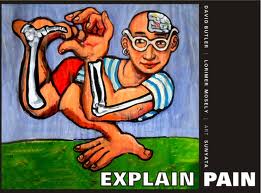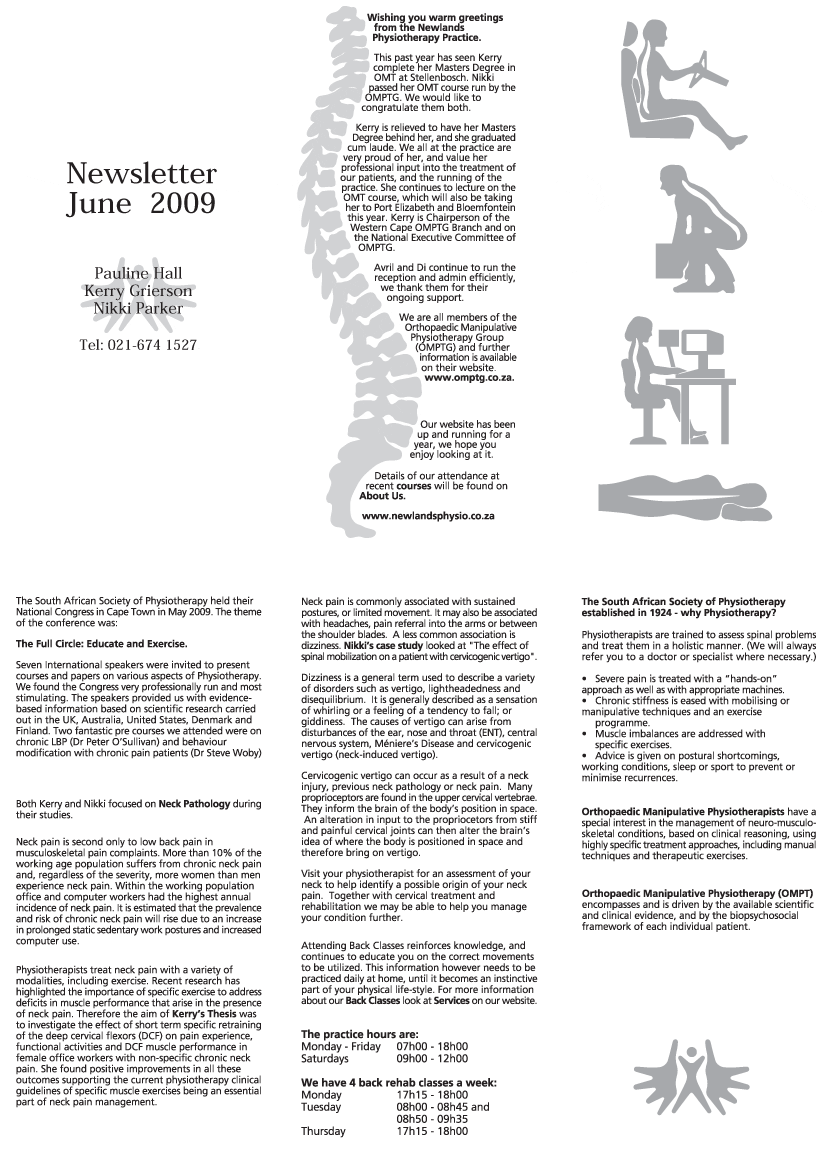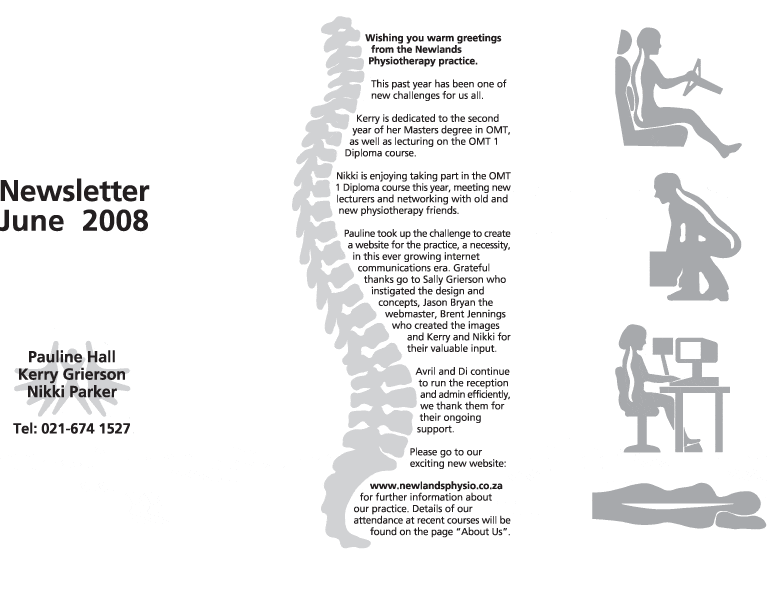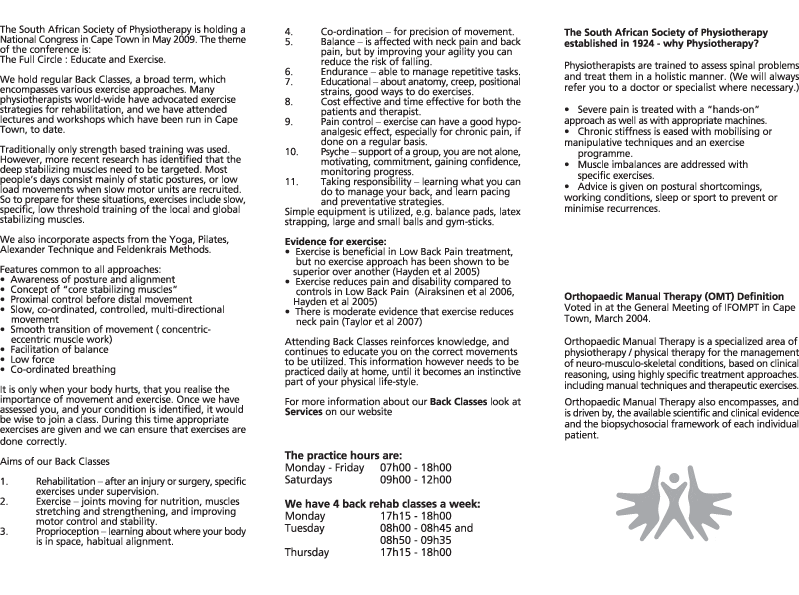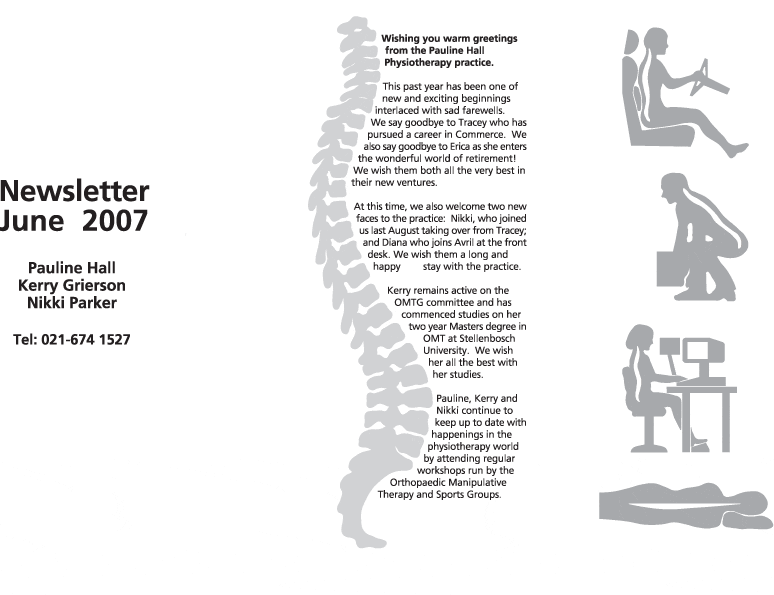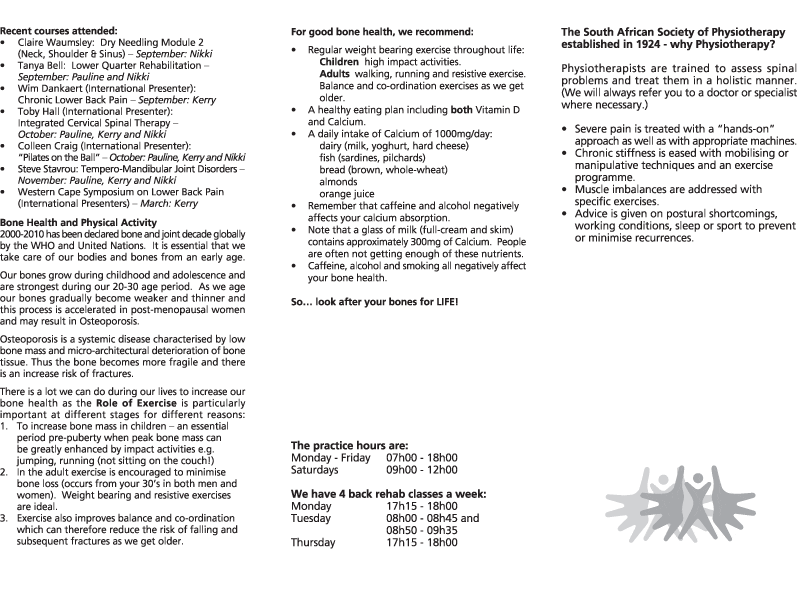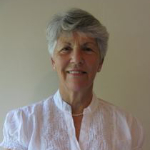1. ABOUT THE PRACTICE
2. INFORMATION OFFICER
3. DEFINITION OF TERMS
4. APPLICATION OF THE PRIVACY STATEMENT
5. OUR COMMITMENT
6. PRIVACY PRINCIPLES
7. WHEN YOU PROVIDE INFORMATION ABOUT ANOTHER INDIVIDUAL / ENTITY
8. COLLECTION OF YOUR PERSONAL INFORMATION
9. PROCESSING AND DISCLOSURE OF PATIENTS’ PERSONAL INFORMATION
10. PROCESSING OF PERSONAL INFORMATION OF DATA SUBJECTS (OTHER THAN PATIENTS)
11. PURPOSE OF PROCESSING OF PERSONAL INFORMATION OF DATA SUBJECTS (OTHER THAN PATIENTS)
12. DISCLOSURE OF PERSONAL INFORMATION OF DATA SUBJECTS (OTHER THAN PATIENTS)
13. LINKS TO SOCIAL NETWORKING SERVICES
14. CONSENT
15. OBJECTION TO PROCESSING
16. RECORD-KEEPING
17. SENDING INFORMATION ACROSS THE BORDERS OF THE REPUBLIC OF SOUTH AFRICA
18. SECURITY OF YOUR PERSONAL INFORMATION
19. SECURITY BREACHES
20. RIGHT TO ACCESS YOUR PERSONAL INFORMATION
21. ACCURACY OF YOUR PERSONAL INFORMATION
22. MARKETING OF PRODUCTS AND SERVICES
23. CHANGES TO THIS PRIVACY STATEMENT
24. CONCERNS AND COMPLAINTS ABOUT THE PROCESSING OF YOUR PERSONAL INFORMATION
25. LAWS APPLICABLE TO THIS PRIVACY STATEMENT
PRIVACY STATEMENT
Please read this Privacy Statement carefully to understand how your personal information will be handled by “Pauline Hall – Physiotherapy”. Every term of this Statement is material. If you do not agree with the processing of your personal information as set out in this Statement, we may in our sole discretion decide whether to provide or continue with the provision of physiotherapy services to you, unless we have a legal obligation to do so, or to otherwise engage with you.
1. ABOUT THE PRACTICE
This is a private physiotherapy practice, which provides physiotherapy services to patients. The practice is subject to various laws protecting the privacy and confidentiality of data subjects (e.g. the Health Professions Act and the National Health Act), including patients, as well as the ethical rules and policies of the Health Professions Council of South Africa (HPCSA).
The practice’s contact details are as follows:
Address: 4 Avenue Hibiscus, NEWLANDS 7700 E-mail: Telephone: 021-6741527
Website: www.newlandsphysio.co.za
2. INFORMATION OFFICER
The contact details of the practice’s Information Officer are as follows:
Name: Pauline Hall
E-mail: Telephone: 021-6741527
3. DEFINITION OF TERMS
3.1 “Personal information” refers to information relating to identifiable, living, natural persons as
well as identifiable, existing juristic persons, and includes, but is not limited to -
3.1.1 information relating to the race, gender, sex, pregnancy, marital status, national, ethnic or social origin, colour, sexual orientation, age, physical or mental health, well-being, disability, religion, conscience, belief, culture, language and birth of the person;
3.1.2 information relating to the education or the medical, financial, criminal or employment
history of the person;
3.1.3 any identifying number, symbol, e-mail address, physical address, telephone number,
location information, online identifier or other particular assignment to the person;
3.1.4 the biometric information of the person;
3.1.5 the personal opinions, views or preferences of the person;
3.1.6 correspondence sent by the person that is implicitly or explicitly of a private or
confidential nature or further correspondence that would reveal the contents of the
original correspondence;
3.1.7 the views or opinions of another individual about the person; and
3.1.8 the name of the person if it appears with other personal information relating to the
person or if the disclosure of the name itself would reveal information about the person,
and “information” has a similar meaning unless the context requires otherwise.
3.2 “Processing” refers to any operation or activity or any set of operations, whether or not by automatic means, concerning personal information, including -
3.2.1 the collection, receipt, recording, organisation, collation, storage, updating or modification, retrieval, alteration, consultation or use;
3.2.2 dissemination by means of transmission, distribution or making available in any other form; or
3.2.3 merging, linking, as well as restriction, degradation, erasure or destruction of information.
3.3 “POPIA” means the Protection of Personal Information Act (Act 4 of 2013) and Regulations made in terms thereof.
3.4 “We” / “us” refers to the practice and the practice owners / partners / directors.
3.5 “You” / “your” refers to the data subject (i.e. the person or entity) whose personal information is
in the possession of or under the control of or processed by the practice.
4. APPLICATION OF THE PRIVACY STATEMENT
This Privacy Statement applies to personal information that we have in our possession or under our control, and information that we collect or receive from or about you (for example, when you obtain physiotherapy services at the practice and/or submit information via the practice’s website). It stipulates, amongst others, how we collect your personal information, the type of information collected, why that information is collected, the circumstances under which that information will be shared with others, the security measures that we have implemented to protect your personal information and your right to obtain access to and correct the information in our possession or under our control.
5. OUR COMMITMENT
We understand that your personal information is important to you and that you may be anxious about disclosing it. Your privacy and the security of your information are just as important to us and we therefore want to make sure you understand how your information will be processed. We acknowledge that we are required by law to keep your personal information confidential and secure. We are committed to conducting our practice in accordance with the law in order to ensure that the confidentiality of your personal information is protected and maintained. We take this commitment to look after your personal information seriously. We have implemented a number of processes to make sure that your personal information is used in the right way.
6. PRIVACY PRINCIPLES
We apply the following principles in order to protect your privacy:
● No more personal information about you than what is necessary is collected;
● Your personal information is only used for the purposes specified in this Privacy Statement,
unless you are advised otherwise;
● Your personal information is not kept by us if it is no longer needed; and
● Other than as specified in this Privacy Statement or otherwise agreed with you, we do not share
your personal information with third parties.
7. WHEN YOU PROVIDE INFORMATION ABOUT ANOTHER INDIVIDUAL / ENTITY
You must make sure that if you provide personal information about any individual or entity to us, you may lawfully do so (e.g. with their consent). We will accept that you are acting lawfully. You should make sure that they are familiar with this Privacy Statement and understand how we will use and disclose their information.
8. COLLECTION OF YOUR PERSONAL INFORMATION
We obtain personal information directly from you when you become a patient or an employee, when you log onto our website or when you provide information to us. Information may also be collected from other sources, depending on the circumstances, such as your next-of-kin, another health care practitioner involved in your care, the hospital / facility admission form, a credit bureau, a public record or when you make information publicly available. The information that we request from you is necessary to provide you with physiotherapy services or to manage the employment or other relationship. Information is generally collected for the purposes as set out below.
9. PROCESSING AND DISCLOSURE OF PATIENTS’ PERSONAL INFORMATION
There are various laws that permit the processing of your personal information such as the National Health Act, the Health Professions Act and POPIA. We will only process, which includes collect, use, store or disclose, your personal information in accordance with the law or otherwise with your consent and will always strive to keep your information confidential, whether you supply it directly to us or whether it is collected lawfully from other sources.
We generally collect and process the following personal information about patients and retain it as part of our records:
● Name, identity number, date of birth, age, contact details, address and gender;
● Name and contact details of next-of-kin;
● Health status and disability;
● Funder (e.g. medical scheme) information;
● Physiotherapy services provided;
● Reports from special investigations such as radiology reports and pathology results;
● Account and payment details; and
● Patient documentation, including consent forms, invoices, photos, videos and correspondence.
When you become a patient of the practice, we will use your personal information as follows:
● to provide you with appropriate care;
● to communicate with you in respect of your care, including reminding you of appointments and
collecting payments for services rendered;
● for administrative purposes, including preparing invoices and collecting payment for services
rendered;
● to refer you to other practitioners;
● to report to referring practitioners;
● for participation in clinical trials;
● record-keeping;
● for historical, statistical and research purposes;
● as proof;
● for enforcement of the practice’s rights;
● for any other lawful purpose related to the activities of a private physiotherapy practice; and/or
● as may be requested or authorised by you.
We do not use your personal information for commercial purposes.
Depending on the circumstances, your personal information will be disclosed to the following persons and entities:
● relevant treating practitioners to ensure appropriate care;
● next-of-kin (if it is necessary in the circumstances);
● your funder (such as your medical scheme upon its request, for example, to allocate benefits);
● your insurance company (upon your request);
● bodies performing peer review of our practitioners / clinical practice audits;
● our professional advisers as well as employees and service providers who assist us to provide the
services and who perform functions related to the administration of the practice, subject to
confidentiality agreements;
● debt collectors and credit bureaus, if your accounts are outstanding;
● public and private bodies (such as regulators), as may be required in terms of the law;
● law enforcement structures, including courts and tribunals;
● as required or permitted by law, including to comply with any legal obligation or to protect the
rights, property or safety of our business, employees, patients, the public or others; and
● a purchaser of the practice, if applicable.
10. PROCESSING OF PERSONAL INFORMATION OF DATA SUBJECTS (OTHER THAN PATIENTS)
There are various laws that permit the processing of your personal information such as labour laws and POPIA. We will only process, which includes collect, use, store or disclose, your personal information in accordance with the law or otherwise with your consent and will always strive to keep your information confidential, whether you supply it directly to us or whether it is collected lawfully from other sources.
We generally process the following personal information about you, as may be applicable in the circumstances, and retain it as part of our records:
● Health care practitioners and employees
▪ Name, identity number, date of birth, age, contact details, address, HPCSA number, position
or role in the practice, nationality, gender, race, qualifications, specialisation and interests,
curriculum vitae, references and photos;
▪ Membership of the SASP®;
▪ Relevant medical and disability information;
▪ Signatures of official signatories of the practice and proof of residence, if required by the
bank;
▪ Employment-related information;
▪ Bank details;
▪ Professional indemnity cover information; and
▪ Correspondence.
● Suppliers, Service Providers, Other Stakeholders in the Health Care Industry, including Public
Bodies and Regulators
▪ Organisation name and contact details;
▪ Names, titles and contact details of relevant persons and officers;
▪ Black-Economic Empowerment (BEE) status of suppliers;
▪ Agreements and related information;
▪ Invoices;
▪ Official documentation, including newsletters and statements; and
▪ Engagement-related information and correspondence.
Other personal information may be collected and processed, as may be necessary and applicable in the circumstances.
11. PURPOSE OF PROCESSING OF PERSONAL INFORMATION OF DATA SUBJECTS (OTHER THAN PATIENTS)
We generally process personal information for one or more of the following purposes:
● to conduct and manage the practice in accordance with the law, including the administration of
the practice and claiming and collecting payment for services rendered;
● for communication purposes;
● for the maintenance of practice records;
● for employment and related matters of employees and other practitioners;
● for reporting to persons and bodies as required and authorised in terms of the law or by you;
● for historical, statistical and research purposes;
● for proof;
● for enforcement of the practice’s rights; and/or
● for any other lawful purpose related to the activities of a private physiotherapy practice.
We do not use your personal information for commercial purposes.
12. DISCLOSURE OF PERSONAL INFORMATION OF DATA SUBJECTS (OTHER THAN PATIENTS)
Relevant personal information of data subjects (other than patients) will be shared, as may be necessary in the circumstances, with our professional advisers, relevant employees (on a need-to-know basis), our auditors / accountants, regulators, relevant public and private bodies, law enforcement structures, or a purchaser of the practice. The information will only be shared as permitted in terms of the law or as otherwise agreed to with such a person.
13. LINKS TO SOCIAL NETWORKING SERVICES
We may use social networking services such as WhatsApp, LinkedIn, Twitter and Facebook to communicate with the public about our services. When you communicate with us through these services, the relevant social networking service may collect your personal information for its own purposes. These services have their own privacy policies, which are independent of this Privacy Statement.
14. CONSENT
If you provide consent to us to process your personal information, you may withdraw your consent at any time. This does not affect the processing of personal information that has already occurred. If you withdraw your consent, your personal information will only be processed as provided for in the law, and, if the circumstances make it reasonable and lawful for us to do so, we may terminate our relationship with you.
15. OBJECTION TO PROCESSING
In certain instances, you may object to the processing of your personal information, if it is reasonable to do so, unless we may do so in terms of the law. This must occur on the form prescribed by POPIA. This does not affect personal information already processed. If you object and we agree with your objection, your personal information will only be processed as provided for in the law. If you exercise this right and, if the circumstances make it reasonable and lawful for us to do so, we may terminate our relationship with you.
16. RECORD-KEEPING
We maintain records of your personal information for as long as it is necessary for lawful purposes in accordance with the law, including to fulfil your requests, provide services to you, comply with legal obligations, resolve disputes, enforce agreements and as proof. These records may be held in electronic format. We may also retain your personal information for historical, statistical and research purposes, subject to the provisions of the law.
17. SENDING INFORMATION ACROSS THE BORDERS OF THE REPUBLIC OF SOUTH AFRICA
We process and store your information in records within the Republic South Africa, including in ‘clouds’, which comply legal requirements to ensure the protection of your privacy. If we must provide your personal information to any third party in another country, we will obtain your prior consent unless such information may be lawfully provided to that third party.
18. SECURITY OF YOUR PERSONAL INFORMATION
We are committed to ensuring the security of your personal information in order to protect it from unauthorised processing and access as well as loss, damage or unauthorised destruction. There are also inherent risks in the electronic transfer and storage of personal information. We have implemented and continually review and update our information protection measures to ensure the security, integrity, and confidentiality of your information in accordance with industry best practices. These measures include the physical securing of the offices where information is held, the locking of cabinets with physical records, password control to access electronic records, which passwords are regularly changed, off-site data back-ups and stringent policies in respect of electronic record storage and dissemination. In addition, only those employees and service providers that require access to your information to discharge their functions and to render services to us are granted access to your information and only if they have concluded agreements with or provided undertakings regarding the implementation of appropriate security measures, maintaining confidentiality and processing the information only for the agreed purposes.
19. SECURITY BREACHES
We will inform you and the Information Regulator, if any person has unlawfully obtained access to your personal information, subject to the provisions of the law.
20. RIGHT TO ACCESS YOUR PERSONAL INFORMATION
You have the right to have access to your personal information subject to restrictions imposed in legislation. You may request access to your information in our possession or under our control and information of third parties to whom we supplied that information. If you wish to exercise this right, please complete and submit the prescribed form to the Information Officer. Costs may be applicable to such request. The relevant form and costs can be obtained from the Information Officer. You may also consult our PAIA Manual.
21. ACCURACY OF YOUR PERSONAL INFORMATION
It is important that we always have accurate information about you on record as it could impact on communication with you and your health, if applicable. You must therefore inform us as soon as any of your information has changed. You may also request that we correct or delete any information. Such a request must be made in writing on the prescribed form to the Information Officer and must provide sufficient detail to identify the information and the correction or deletion required. Information will only be corrected or deleted, if we agree that the information is incorrect or should be deleted. It may not be possible to delete all of the information if there is a legal basis to retain the information. However, please contact the Information Officer to discuss how we can assist you with your request. If we correct any information and the corrected information will impact on any decision made or to be made about you, we will send the corrected information to persons to whom the information has been disclosed in the past if they should be aware of the changed information.
22. MARKETING OF PRODUCTS AND SERVICES
If you have provided consent, we may occasionally inform you, electronically or otherwise, about supplementary products and services offered by us that may be useful or beneficial to you. You may at any time withdraw your consent and opt out from receiving such information.
23. CHANGES TO THIS PRIVACY STATEMENT
We reserve the right in our sole and absolute discretion, to revise or supplement this Privacy Statement from time to time to reflect, amongst others, any changes in our business or the law. We will publish the updated Privacy Statement on our website at www.newlandsphysio.co.za . It will also be available at the practice reception. Any revised version of the Statement will be effective as of the date of posting on the website, so you should always refer back to the website for the latest version of the Statement. It is your responsibility to make sure you are satisfied with any changes before continuing to use our services. If we make a material change to this Statement, you will be notified with a notice on the website and in the practice that our privacy practices have changed and you will obtain a link / access to the new Statement. In the event that we make a material change to how we use your personal information, we will provide you with an opportunity to opt out of such new or different use. If you have any questions concerning this Statement, please contact our Information Officer.
24. CONCERNS AND COMPLAINTS ABOUT THE PROCESSING OF YOUR PERSONAL INFORMATION
All enquiries, requests or concerns regarding this Statement or relating to the processing of your personal information should be addressed to the Information Officer. If you believe that we process your personal information contrary to this Privacy Statement or in contravention of the law, please contact the Information Officer immediately. You may also lodge a complaint with the Information Regulator at / +27 (0)10 023 5207 / +27 (0)82 746 4173.
25. LAWS APPLICABLE TO THIS PRIVACY STATEMENT
This Privacy Statement is governed by the laws of the Republic of South Africa.
All reasonable measures are taken to ensure the quality and accuracy of the information presented here. However, there is the possibility of unauthorized modification of the data, transmission errors, HTML browser incompatibilities, changes made since the last update to the Website, or other aspects of electronic communication that are beyond the control of Newlands Physiotherapy. As such, Newlands Physiotherapy does not guarantee the accuracy of the information provided on its website and is not liable for reliance on this information. In using this website, you agree that its information is provided "as is, as available" without warranty, express or implied, and that you use this site at your own risk.
The information and data included herein website have been compiled from a variety of sources and are subject to change without notice. Newlands Physiotherapy makes no warranties or representations whatsoever regarding the quality, content, completeness, or adequacy of such information and data, follow-up with additional and independent sources.
If misleading, inaccurate or otherwise inappropriate information is brought to our attention, a reasonable effort will be made to fix or remove it. Such concerns should be sent to our email address, or via fax, as detailed on the Contacts page.
No warranty of any kind, implied, expressed or statutory, including but not limited to the warranties of non-infringement of third party rights, title, merchantability, fitness for a particular purpose and freedom from computer virus, is given with respect to the contents of this web site or its hyperlinks to other Internet resources.
Reference in this website to any specific commercial products, processes, or services, or the use of any trade, firm or corporation name is for the information and convenience of website visitors. It does not constitute endorsement, recommendation, or favouring by Newlands Physiotherapy.
OWNERSHIP
Information presented on this website is copyrighted and may not be distributed or copied without written permission from Newlands Physiotherapy management.
The Newlands Physiotherapy Logo and related graphics shown on this website is our official “trademark”. This and photos of our products on the website is explicitly reserved for our use only.
EXTERNAL SITES
Newlands Physiotherapy contains links to external sites that help provide visitors interested in learning more about the topics discussed on the website with information that may have been found to be useful in the past. Links to external servers do not necessarily imply any endorsement of the opinions or ideas expressed therein, or guarantee the validity of the information provided. Links to commercial sites are in no way an endorsement of any vendor's products or services. Nor do they provide any endorsement of fundraising efforts or lobbying for a political agenda.
WEBSITE COMMENTS
Newlands Physiotherapy appreciates questions, comments, and any other feedback that will help us serve you better. If there is something that is not on this website that you feel we should provide; if you have suggestions on how to improve anything about this website; or if you found something wrong with the information on this website, such as outdated or incorrect information, missing documents, or information located in the wrong place, please send your comments to Please be sure to include a reference to the web page when reporting a problem.
Communications sent via the Internet shall in no way be deemed to constitute legal notice to Newlands Physiotherapy or any of its Staff.
ACCEPTANCE
The use of the Newlands Physiotherapy website indicates your unconditional acceptance of the above disclaimers and statements. You further agree that Newlands Physiotherapy and its Staff have no liability for direct, indirect, incidental, punitive, or consequential damages with respect to the information, services, or content contained on or otherwise accessed through this website.
Thank you for visiting!
-
Please note that Equilibrium newsletters are best viewed on desktop devices.
- PhysioBiz 2022
- PhysioBiz 2021
- PhysioBiz 2020
- PhysioBiz 2019
- PhysioBiz 2018
- PhysioBiz 2017
- My clumsy child
- A pain in the back
- Workmen’s compensation explained
- What is bronchiolitis and what causes it?
- Running and related injuries
- Finding time for exercise
- What you need to know about Guillain-Barré syndrome
- Why do we feel pain and how do we manage pain?
- About physical activity and cardiovascular disease
- Pain from the most mobile joint in your body
-
PhysioBiz - August 2022 - The Big C
PhysioBiz - July 2022 - Stroke Survivors
PhysioBiz - June 2022 - Winter Winners
PhysioBiz - May 2022 - Oh Baby
PhysioBiz - April 2022 - Lets hop to it
PhysioBiz - March 2022 - It's in the joints
PhysioBiz - February 2022 - All heart
PhysioBiz - January 2022 - Resolutions on track -
PhysioBiz - December 2021 - Time to de-stress
PhysioBiz - November 2021 - Pain Description
PhysioBiz - October 2021 - Seeing Through You
PhysioBiz - September 2021 - Why Am I Hurting
PhysioBiz - August 2021 - Tips For Home Care With Covid
PhysioBiz - June 2021 - All In The Head
PhysioBiz - May 2021 - Just Breathe
PhysioBiz - April 2021 - In Good Hands
PhysioBiz - March 2021 - The Forgotten Muscles
PhysioBiz - February 2021 - That Lovin Feeling
PhysioBiz - January 2021 - Laughter the Great Healer -
PhysioBiz - December 2020 - Exercise
PhysioBiz - November 2020 - Think Twice
PhysioBiz - October 2020 - Up and At Em
PhysioBiz - Sep 2020 - Do You Really Need to Pay to be Active
PhysioBiz - August 2020 - Winning the COVID-19 Battle
PhysioBiz - July 2020 - United We Stand
PhysioBiz - June 2020 - Reach Out & Touch
PhysioBiz - May 2020 - Take a Deep Breath
PhysioBiz - April 2020 - Feeling Blue
PhysioBiz - February 2020 - Healthy living Month
PhysioBiz - January 2020 - Everyday Activities
-
PhysioBiz - December 2019 - The Season To Be Safe
PhysioBiz - November 2019 - Sleep: the other nutrient
PhysioBiz - October 2019 - Are walking rings safe?
PhysioBiz - Sept 2019 - Ready, steady, go!
PhysioBiz - August 2019 - Here comes summer
PhysioBiz - July 2019 - Banish the winter blues
PhysioBiz - June 2019 - Childrens lives matter
PhysioBiz - May 2019 - Want to be fitter
PhysioBiz - April 2019 - A matter of trust
PhysioBiz - March 2019 - Hip Hip Hooray
PhysioBiz - February 2019 - Brain food
-
PhysioBiz - November 2018 - Heat and stroke
PhysioBiz - October 2018 - Jolly joints and blissful bones
PhysioBiz - September 2018 - News that’s not fake!
PhysioBiz - August 2018 - Knees up, Mother Brown
PhysioBiz - July 2018 - Cold, stiff and achy?
PhysioBiz - June 2018 - Good Sports
PhysioBiz - May 2018 - Working with water for health and vitality
PhysioBiz - April 2018 - When work is a pain in the neck
PhysioBiz - March 2018 - Who you gonna call
PhysioBiz - February 2018 - A time to dance
PhysioBiz - January 2018 - Bringing up baby -
PhysioBiz December 2017 - 'Tis the season to be merry
PhysioBiz November 2017 - Trust in me
PhysioBiz October 2017 - Sleep, vital to our health
PhysioBiz September 2017 - Pain and Stress, how to cope with these common problem
PhysioBiz August 2017 - Banish work related aches & pains
PhysioBiz June 2017 - A good and healthy patient!
PhysioBiz May 2017 - Break the barriers
PhysioBiz April 2017 - Pain and Depression -



JUNE 2016 Quick links Find a physio SASP Website Send to a friend Contact us Subscribe Unsubscribe My clumsy child Young children often stumble and fall. This is part of ‘growing up’, but there is a fine line between normal childhood clumsiness or awkwardness, and a physical movement disorder called ‘Developmental Coordination Disorder’.
We take a closer look at what to do when clumsiness starts affecting your child’s development in this issue.
All the best,
The South African Society of Physiotherapy
www.saphysio.co.za
We would like to thank the Paediatrics Physiotherapy Group for the information supplied.
Only persons with degrees obtained at institutions approved in terms of the Higher Education Act may call themselves physiotherapists, whether the work is performed on animals, humans, or in any field of interest.
The content is for information and educational purposes only. The South African Society of Physiotherapy (SASP) has attempted to provide recent and accurate information at the time of publication. The SASP does not assume liability for the use of information contained in this communique. It also does not replace, nor should it be considered an alternative to a medical consultation. Copyright SASP. All rights reserved.
What does it mean to be ‘clumsy’? Many toddlers (12-24 months) who just have started walking by themselves can seem quite clumsy and they tend to stumble and fall often. Read more... 
Let’s Talk about ‘Developmental Coordination Disorder' (DCD) DCD is a physical movement disorder. It is an umbrella term used to describe a set of signs and symptoms seen in a child who is ‘clumsier than normal’. Read more... 
What can you do to help your child with DCD? First get your child assessed by a paediatric physiotherapist, who will also refer you to other health care professionals. Read more... 
The lighter side of life Laughter is life's best medicine.
Click on image to enlarge...
Subscribe Unsubscribe Send to a friend Contact us Equilibrium is produced monthly by the South African Society of Physiotherapy. We do not want to send you spam.
If you no longer wish to receive this communiqué, please unsubscribe here. Editorial production and design by
The Hothouse Communications, 011-678-3545. -



may 2016 Quick links Find a physio SASP Website Send to a friend Contact us Subscribe Unsubscribe A pain in the back! A whopping 64% of the population experience lower back pain sometime in their lives; and it’s even more shocking to think that one in three of us – 36% – currently suffers from lower back pain.
We look at the causes, the treatment and ways to avoid back pain in this issue.
All the best,
The South African Society of Physiotherapy
www.saphysio.co.za
We would like to thank the Orthopaedic Manipulative Physiotherapy Group (OMPTG) for the information supplied.
Only persons with degrees obtained at institutions approved in terms of the Higher Education Act may call themselves physiotherapists, whether the work is performed on animals, humans, or in any field of interest.
The content is for information and educational purposes only. The South African Society of Physiotherapy (SASP) has attempted to provide recent and accurate information at the time of publication. The SASP does not assume liability for the use of information contained in this communique. It also does not replace, nor should it be considered an alternative to a medical consultation. Copyright SASP. All rights reserved.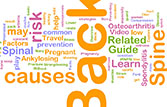
What is lower back pain? Lower back pain is defined as pain experienced between the twelfth thoracic vertebra (where your ribcage ends) and the gluteal folds (bottom of the buttock). Read more... 
What causes lower back pain? Lower back pain can be triggered by pathology affecting the anatomical structures around the lower back such as muscles, joints, ligaments, nerves or discs. Read more... 
What are the treatment options if you experience low back pain? There are conservative as well as surgical solutions to low back pain.
Read more...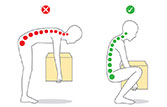
How to prevent low back pain A healthy lifestyle is one crucial element in the prevention of low back pain. Read more... 
The lighter side of life Laughter is life's best medicine.
Click on image to enlarge...Subscribe Unsubscribe Send to a friend Contact us Equilibrium is produced monthly by the South African Society of Physiotherapy. We do not want to send you spam.
If you no longer wish to receive this communiqué, please unsubscribe here. Editorial production and design by
The Hothouse Communications, 011-678-3545. -



march 2016 Quick links Find a physio SASP Website Send to a friend Contact us Subscribe Unsubscribe Workmen’s compensation explained We devote this issue to Workmen’s Compensation. The Workmen’s Compensation Act (WCA) is a system created according to COIDA (Compensation for Occupational Injuries and Diseases Act) to protect both the employer and employees when work injuries occur. It falls under the South African Department of Labour.
Read more about how the system works, how to claim, and some common misconceptions about Workmen’s Compensation.
All the best,
The South African Society of Physiotherapy
www.saphysio.co.za
We would like to thank the Occupational Health Special Interest Group for the information supplied.
Only persons with degrees obtained at institutions approved in terms of the Higher Education Act may call themselves physiotherapists, whether the work is performed on animals, humans, or in any field of interest.
The content is for information and educational purposes only. The South African Society of Physiotherapy (SASP) has attempted to provide recent and accurate information at the time of publication. The SASP does not assume liability for the use of information contained in this communique. It also does not replace, nor should it be considered an alternative to a medical consultation. Copyright SASP. All rights reserved.
How does this system work? Workmen's Compensation can be compared to medical insurance for employees who sustain injuries at work. Read more... 
How do you claim for compensation after a work injury? The first step is to complete an 'Employer's Report of an Accident' form. Read more... 
Common misconceptions about Workmen's compensation The most common misconception is that the employee will receive a monetary payment for the injury. This is only in severe cases of disability. Read more... 
Did you know? Did you know that an employee can be dismissed on grounds of incapacity? Read more... 
The lighter side of life Laughter is life's best medicine.
Click on image to enlarge...Subscribe Unsubscribe Send to a friend Contact us Equilibrium is produced monthly by the South African Society of Physiotherapy. We do not want to send you spam.
If you no longer wish to receive this communiqué, please unsubscribe here. Editorial production and design by
The Hothouse Communications, 011-678-3545. -



Quick links Find a physio SASP Website Send to a friend Contact us Subscribe Unsubscribe What is bronchiolitis and what causes it? Winter is fast approaching, accompanied by seasonal respiratory viruses, which cause a range of illnesses from the common cold (upper respiratory tract infections), to mild or more severe lung infections.
Bronchiolitis is one of the most common viral-induced lower respiratory tract (lung/chest) infections, usually affecting young children under two years of age. Respiratory syncytial virus (RSV) is the main culprit, although other viruses may also cause bronchiolitis.
We take a closer look at bronchiolitis, its causes, symptoms and treatment.
All the best,
The South African Society of Physiotherapy
www.saphysio.co.za
Only persons with degrees obtained at institutions approved in terms of the Higher Education Act may call themselves physiotherapists, whether the work is performed on animals, humans, or in any field of interest.
We would like to thank the CPRG SIG for information used in this newsletter.
Copyright SASP. All rights reserved.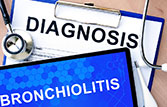
How is bronchiolitis diagnosed? Bronchiolitis is usually diagnosed from the history given by the mother about their child’s clinical signs and symptoms. Read more... 
What treatment is needed? Bronchiolitis usually improves on its own, without specific treatment, but very occasionally it may progress to more severe illness. Read more... 
WHEN Should I take my child to the physiotherapist? Chest physiotherapy generally aims to remove obstructive secretions (phlegm) in the lungs. Read more... 
How long will it take for my child to recover? It is important to note that symptoms may continue for up to four weeks in some children. Read more... 
How can I prevent my child from getting bronchiolitis? General hygiene is important to prevent the spread of viruses between children. Read more... 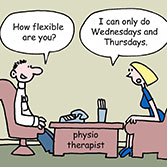
The lighter side of life Laughter is life's best medicine.
Click on image to enlarge...Subscribe Unsubscribe Send to a friend Contact us Equilibrium is produced monthly by the South African Society of Physiotherapy. We do not want to send you spam.
If you no longer wish to receive this communiqué, please unsubscribe here. Editorial production and design by
The Hothouse Communications, 011-678-3545. -



Quick links Find a physio SASP Website Send to a friend Contact us Subscribe Unsubscribe Running and related injuries Mention injuries and many a runner would have their own tale(s) of woe to share.
Because of its high-impact nature, running injuries can happen to anyone – from low mileage beginners to experienced ultramarathon athletes. Some of the most common running injuries such as "runner's knee" (pain in the knee), shin splints, pulled muscles (especially the hamstring), twisted ankles, Iliotibial Band Syndrome (ITB), plantar fasciitis, and Achilles tendinitis are associated with running.
In this issue we look at Iliotibial Band Syndrome (ITB), which is one of the most common injuries physiotherapists get to deal with – especially this time of the year.
All the best,
The South African Society of Physiotherapy
www.saphysio.co.za
Only persons with degrees obtained at institutions approved in terms of the Higher Education Act may call themselves physiotherapists, whether the work is performed on animals, humans, or in any field of interest.
We would like to thank the Sport SIG for information used in this newsletter.
Copyright SASP. All rights reserved.
What is ITB? The month of April is usually the period when Comrades Marathon runners do their “long runs”, which unfortunately may also increase the incidence of overuse injuries, such as ITB. Read more... 
Treatment for ITB A thorough evaluation by a physiotherapist will ensure that the cause of the injury is identified before treatment is prescribed. Read more... 
Tips when choosing a physiotherapist Veteran Comrades athlete Nikki Campbell shares some of the most valuable lessons she has learnt from many years of running. Read more... 
How to prevent injuries Seven tips from physiotherapists to help minimise injuries. Read more... 
The lighter side of life Laughter is life's best medicine.
Click on image to enlarge...Subscribe Unsubscribe Send to a friend Contact us Equilibrium is produced monthly by the South African Society of Physiotherapy. We do not want to send you spam.
If you no longer wish to receive this communiqué, please unsubscribe here. Editorial production and design by
The Hothouse Communications, 011-678-3545. -



Quick links Find a physio SASP Website Send to a friend Contact us Subscribe Unsubscribe Finding time for exercise We all know the numerous benefits associated with regular exercise, but it can be challenging to fit exercise into a busy schedule.
The good news is that you don’t have to set hours aside for exercise – simply squeezing in just a few minutes a day can be very beneficial to your health.
A recent study found that when inactive people increased their physical activity by just 15 minutes per day, they could increase their life expectancy by three years. Now that’s worth a try.
In this issue we share with you some hints and tips to sneak in some exercise – even in the bath!
All the best,
The South African Society of Physiotherapy
www.saphysio.co.za
Only persons with degrees obtained at institutions approved in terms of the Higher Education Act may call themselves physiotherapists, whether the work is performed on animals, humans, or in any field of interest.
We would like to thank the Aquatic Physiotherapy Group for information used in this newsletter.
Copyright SASP. All rights reserved.
Make exercise a way of life Start small and make exercise part of your daily routine. Read more... 
Saving time at the gym You are used to multitasking at work and home, so why not apply it at the gym as well? Read more... 
Choose the stairs If you have the option, rather take the stairs. Read more... 
More than just a bath Did you know that you can combine a relaxing bath with some stretching and toning? Read more... 
The lighter side of life Laughter is life's best medicine.
Click on image to enlarge...Subscribe Unsubscribe Send to a friend Contact us Equilibrium is produced monthly by the South African Society of Physiotherapy. We do not want to send you spam.
If you no longer wish to receive this communiqué, please unsubscribe here. Editorial production and design by
The Hothouse Communications, 011-678-3545. -



Quick links Find a physio SASP Website Send to a friend Contact us Subscribe Unsubscribe What you need to know about Guillain-Barré syndrome In this issue we look at Guillain-Barré syndrome (GBS). Although GBS can be frightening, it is very rare and only affects one or two people in every 100 000.
The good news is that most of the people who do get GBS recover and return to their normal lives and activities.
Guillain-Barré syndrome can, however, affect anybody and at any age. Please find more information on this syndrome in this issue of Equilibrium.
All the best,
The South African Society of Physiotherapy
www.saphysio.co.za
Only persons with degrees obtained at institutions approved in terms of the Higher Education Act may call themselves physiotherapists, whether the work is performed on animals, humans, or in any field of interest.
We would like to thank the NIH and Neuro SIG for information used in this newsletter.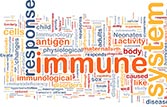
What is Guillain-Barré syndrome? Guillain-Barré syndrome (GBS) is a disorder in which the body's immune system attacks part of the peripheral nervous system. Read more... 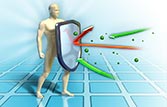
What causes Guillain-Barré syndrome? No one yet knows why Guillain-Barré - which is not contagious - strikes some people and not others. Read more... 
How is Guillain-Barré syndrome diagnosed? Guillain-Barré is called a syndrome rather than a disease because it is not clear that a specific disease-causing agent is involved. Read more... 
How is Guillain-Barré treated? There is no known cure for Guillain-Barré syndrome, but patients may respond well to certain therapies. Read more... 
Guillain-Barré syndrome and physiotherapy Rehabilitation is plays an important role in the treatment of people with GBS. Read more... 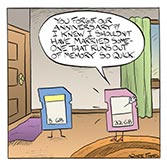
The lighter side of life Laughter is life's best medicine.
Click on image to enlarge...Subscribe Unsubscribe Send to a friend Contact us Equilibrium is produced monthly by the South African Society of Physiotherapy. We do not want to send you spam.
If you no longer wish to receive this communiqué, please unsubscribe here. Editorial production and design by
The Hothouse Communications, 011-678-3545. -



Quick links Find a physio SASP Website Send to a friend Contact us Subscribe Unsubscribe Why do we feel pain and how Do WE manage pain? We all know the unpleasant or sometimes even excruciating feeling of pain. But why do we feel pain, and how do we manage pain even if the cause of pain no longer exists?
We look at these and other questions about pain in this issue of Equilibrium.
All the best,
The South African Society of Physiotherapy
www.saphysio.co.za
Only persons with degrees obtained at institutions approved in terms of the Higher Education Act may call themselves physiotherapists, whether the work is performed on animals, humans, or in any field of interest.
We would like to thank the Pain Management SIG for information used in this newsletter.
Copyright SASP. All rights reserved.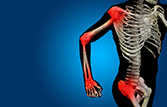
Pain is all about protection We usually experience pain as a result of an injury or after we have injured or hurt ourselves. Read more... 
Pain subsides as the injury heals As injured tissues start to heal, movement becomes less painful.
Read more...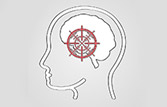
When pain becomes a chronic condition When an injury has completely healed, but the pain remains, the problem may be due to a miscommunication from the brain.
Read more...
Movement and exercise to alleviate pain Movement and exercise can help alleviate pain. Read more... 
The lighter side of life Laughter is life's best medicine.
Click on image to enlarge...
Subscribe Unsubscribe Send to a friend Contact us Equilibrium is produced monthly by the South African Society of Physiotherapy. We do not want to send you spam.
If you no longer wish to receive this communiqué, please unsubscribe here. Editorial production and design by
The Hothouse Communications, 011-678-3545. -



Quick links Find a physio SASP Website Send to a friend Contact us Subscribe Unsubscribe About physical activity and Cardiovascular Disease Cardiovascular Diseases (CVDs) remain the biggest cause of deaths worldwide according to the World Health Organization (WHO).
In this issue we look at the causes of CVDs, the role exercise can play in preventing CVDs ,and how the expert advice of your physiotherapist can help.
All the best,
The South African Society of Physiotherapy
www.saphysio.co.za
Only persons with degrees obtained at institutions approved in terms of the Higher Education Act may call themselves physiotherapists, whether the work is performed on animals, humans, or in any field of interest.
Information from the World Health Organization and the World Confederation for Physical Therapy.
The content of this communique is for information and educational purposes only. The South African Society of Physiotherapy (SASP) has attempted to provide recent and accurate information at the time of publication. The SASP does not assume liability for the use of information contained in this communique. It also does not replace, nor should it be considered an alternative, to a medical consultation. Copyright SASP. All rights reserved.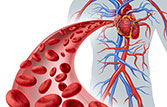
What is Cardiovascular Disease? Cardiovascular Disease is the term used to describe diseases affecting the heart and circulatory system. Read more... 
How to prevent Cardiovascular Disease Tobacco smoking, lack of exercise, unhealthy diet, and excessive alcohol consumption are the main risk factors of Cardiovascular Disease.
Read more...
Exercise and your heart Exercise-based cardiac rehabilitation for patients with Coronary Heart Disease significantly improves health outcomes.
Read more...
Love your heart We bring you some interesting facts on a wonderful organ called the heart. Read more... 
The Lighter Side of Life Laughter is life's best medicine.
Read more...Subscribe Unsubscribe Send to a friend Contact us Equilibrium is produced monthly by the South African Society of Physiotherapy. We do not want to send you spam.
If you no longer wish to receive this communiqué, please unsubscribe here. Editorial production and design by
The Hothouse Communications, 011-678-3545. -



Quick links Find a physio SASP Website Send to a friend Contact us Subscribe Unsubscribe Pain from the most mobile joint in your body Did you know that your shoulder is the most mobile joint in your body?
Your shoulder has a wide range of movement because of the ball-and-socket joint of the main shoulder, while there is a smaller joint where the top of the shoulder blade connects with the collarbone. The small joint contact area also means that your shoulder is fairly unstable and is dependent on your shoulder muscles for normal functioning.
In this issue, we look at shoulder pain, the causes and management of shoulder pain, and how physiotherapy can assist in alleviating this condition.
All the best,
The South African Society of Physiotherapy
www.saphysio.co.za
Only persons with degrees obtained at institutions approved in terms of the Higher Education Act may call themselves physiotherapists, whether the work is performed on animals, humans, or in any field of interest.
We would like to thank the OMPTG SIG for the information used in this newsletter.
The content is for information and educational purposes only. The South African Society of Physiotherapy (SASP) has attempted to provide recent and accurate information at the time of publication. The SASP does not assume liability for the use of information contained in this communique. It also does not replace, nor should it be considered an alternative to a medical consultation. Copyright SASP. All rights reserved.
Shoulder conditions and the associated symptoms Shoulder problems are fairly common and there are a number of shoulder conditions with associated symptoms. Read more... 
OTHER CAUSES OF Shoulder PAIN There are various causes of shoulder pain. Read more... 
How is shoulder pain diagnosed and treated? There are a number of ways the causes of shoulder pain can be diagnosed. Read more... 
How your physiotherapist can help A physiotherapist trained in the musculoskeletal part of physiotherapy plays an important role in the accurate diagnosis and treatment of painful shoulder. Read more... 
The lighter side of life Laughter is life's best medicine.
Click on image to enlarge...
Subscribe Unsubscribe Send to a friend Contact us Equilibrium is produced monthly by the South African Society of Physiotherapy. We do not want to send you spam.
If you no longer wish to receive this communiqué, please unsubscribe here. Editorial production and design by
The Hothouse Communications, 011-678-3545.
Directions from Cape Town:
- Take the M3 to Muizenberg, passing the University of Cape Town on your right.
- At the first set of traffic lights, turn left into Newlands Avenue.
- Turn 2nd right into Avenue La Caille (travelling away from the mountain)
- At the T-junction turn left into Broadway Avenue, which turns to the right and becomes Hibiscus Avenue.
- The Practice is no.4 on the left hand side.
- Take the M3 north towards Cape Town.
- At the traffic lights at the top of Paradise Road, turn right into Newlands Avenue.
- Turn 2nd right into Ave La Caille (travelling away from the mountain).
- At the T-junction turn left into Broadway Avenue, which turns to the right and becomes Hibiscus Avenue.
- The Practice is no.4 on the left hand side.
- Take Kildare Road, travelling north, towards the mountain.
- At the circle continue straight along Kildare Road.
- At the T-junction turn left into Newlands Avenue.
- After passing the Avenue Café on your left, turn left into Avenue La Caille (travelling away from the mountain).
- At the T-junction turn left into Broadway Avenue, which turns to the right and becomes Hibiscus Avenue.
- The Practice is no.4 on the left hand side.
- Take the Main Road traveling towards Claremont.
- At the traffic lights turn right into Klipper Road.
- At the top of Klipper Road take the left fork into Newlands Avenue.
- Cross over the traffic lights at Dean Street.
- Travel past Montebello, BP garage on your left, Forresters Arms Pub on your right,, and Avenue Café on left.
- Take the next road left into Avenue La Caille (travelling away from the mountain).
- At the T-junction turn left into Broadway Avenue, which turns to the right and becomes Hibiscus Avenue.
- The Practice is no.4 on the left hand side.
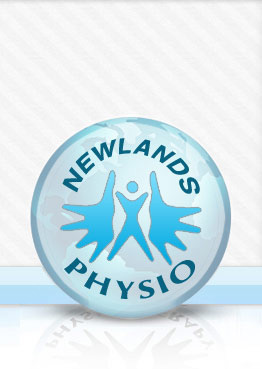

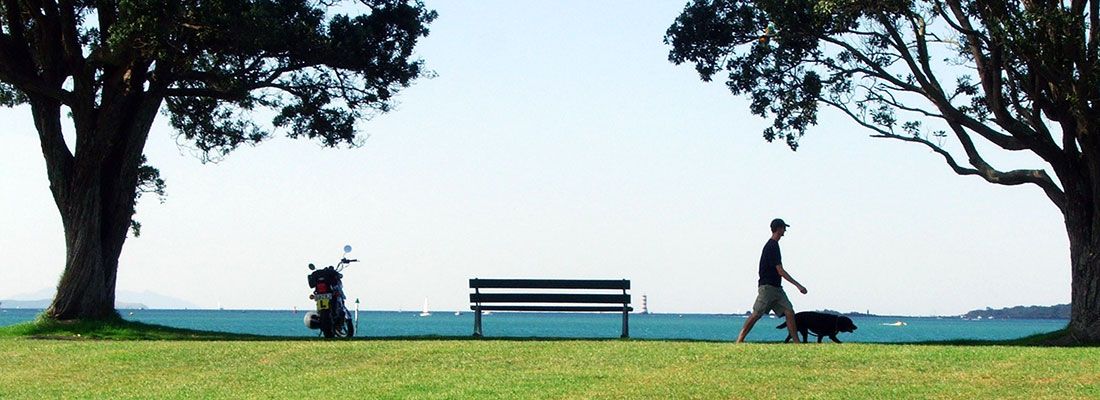



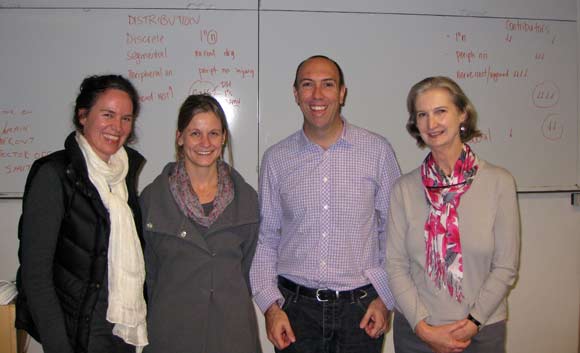 Kerry, Lara, Dr. Lorimer Moseley and Pauline
Kerry, Lara, Dr. Lorimer Moseley and Pauline 